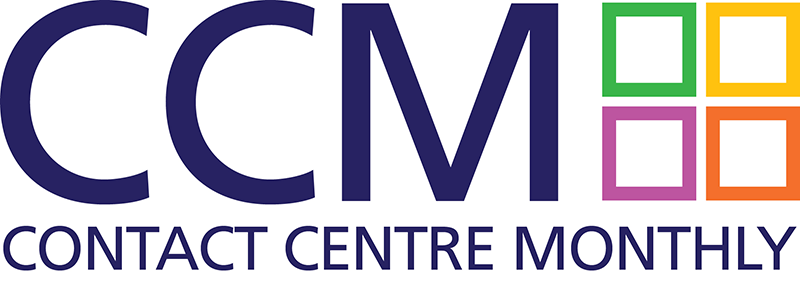69% of the UK’s Gen Z feels stressed and experience symptoms of burnout due to work, yet still report they feel happy in their everyday work life.
· 64% believe in changing jobs as a career development driver.
· 26% of UK Gen Zs consider career more important than their personal life.
· 62% agree that casual catch ups in person or on video are important to make them feel connected.
· 29% of Gen Z in the UK feel uncomfortable taking up conversations about feeling unhappy at work with their manager.
Barcelona, 30th January, 2024, As our work habits further stabilise in a post-pandemic era, the return to office continues to rise. But what does this look and, more importantly, feel like for the UK’s up-and-coming workforce; Generation Z?
Some unwritten rules seem to have been overturned as the newest generation enters our working world in the UK. Flexibility (81%) matters more than anything else, even above salary, where no GenZ selected this option when rating the importance of factors to consider when choosing a job. In fact, GenZ gave flexibility the highest ranking of all generations here. This is according to Jabra’s newest report, Mind the Gap – How Gen Z is Disrupting the Workplace in 2024, which looks at work across generations, carried out amongst 4,473 people in 14 markets worldwide.
However, such generational differences in preference not only present themselves as flipped ideals, but in some cases, several total paradoxes: 69% of the UK’s Gen Z feel stressed and experience symptoms of burnout due to work, yet simultaneously report to be more than satisfied compared to other generations with their career development (72%). According to recent studies, Gen Z and millennials currently make up approximately 38% of the global workforce and this percentage will rise to about 58% by 2030[1]. Leaders must learn to understand the shift in their mindset, attitudes, and values to unlock their full, collaborative potential.
Paradox 1: Gen Z might be happy, but they already have one foot out the door
Now Gen Z has been in the workforce for a few years, the conditions they entered the job market under (online and work-from-home) are clearly starting to reflect their digital native nature. They are considered the most flexible work-driven generation, with the vast majority (97%) working in jobs in the UK that allow them to choose their own schedules. However, Gen Zs say they are happy at work, but are also looking for an exit strategy.
More than 70% say they are satisfied, but 69% say they are burnt out and 55% expect to change job in the next year. Whether this is an extension of the “quiet quitting” trend or down to the 64% of Gen Z believing in changing jobs as a career development driver is yet to be concluded.
Paradox 2: Can Gen Z get flexibility, work-life balance, and a career all at once?
Gen Z is often branded the generation that wants it all, desiring career development, flexibility, and work-life balance all at once. While this generation is often thought to prioritise personal life over work, more than a quarter (26%) of Gen Z in the UK still prioritise their careers over work-life balance.
Whether this difference can be put down to GenZ being generally more ambitious or having been misinformed about the reality of working is unclear.
For example, Gen Z was found to be twice as likely as boomers to select social media as an influence on expectations on career (22%). There is a question mark over social media’s role played in illustrating that ‘anything is achievable’, making the social media trend of ‘lazy girl job’ status so desirable. So, is Gen Z in for a rude awakening or will their drive result in finding the sweet spot that has alluded generations before when it comes to work-life balance?
Paradox 3: A hybrid workforce that wants face-to-face time
Hybrid working has certainly helped many with work-life balance, particularly suiting digital-native Gen Zs. But, when asked what makes them feel connected with their colleagues at work, one third (33%) of Gen Z in the UK found face-to-face with their peers and manager a key factor. Being with colleagues in person surfaced as the number one reason for GenZ employees feeling a sense of belonging at work.
However, as digital natives, Gen Z are happy to rely on digital tools and technology to allow them to keep in contact with their colleagues. More than 6 in 10 (62%) agree that seeing or having casual catch ups either on video or in person is an important factor in making them feel more connected.
Although Gen Z demands flexible working the most, which often includes a virtual element, nothing beats in-person interactions. Despite this, when necessary, they are the only generation to feel the biggest sense of belonging online, most probably due to their positive relationship with technology. For this reason, leaders must facilitate closer digital proximity to colleagues through frequent touch points too. This can range from in-person chats and meetings, to leveraging professional technology for calls, emails and virtual meetings that allow for a seamless, close to in-person experience. Ultimately, the role of technology aims to bridge the hybrid divide and nurture a rounded sense of belonging with employees of all generations.
Paradox 4: Gen Z keeps silent, but expect the opposite of managers
Belonging is one thing, but feeling heard in the workplace is another. It’s no secret that Gen Z is comfortable speaking up about difficult topics, such as mental health and diversity, but does this translate to their professional experiences too? It seems not; 29% of Gen Z in the UK feel uncomfortable taking up conversations about feeling unhappy at work with their manager.
Despite not wanting to discuss these issues, when asked what the most important qualities in a manager are, it became evident that today’s employees still value soft skills over hard skills. Gen Z would rather have an empathetic manager (40%) than an experienced one (8%), while honesty and integrity is six times more important than experience.
As many employees enter management positions at a younger age now, it’s likely that organisations will see a shift in the manager role and consequently, management styles. This can be seen by Gen Z’s ranking of friendliness and a flat hierarchy significantly higher than other generations (35% consider it an important quality, compared with 16% of Boomers).
This leaves managers with a difficult task. In order to help Gen Zs transition from a quietly unhappy workforce to well-rounded and genuinely positive leaders of the future, managers today must balance leading by example, with maintaining an approachable and transparent attitude.
Managers will have to be honest with a generation of employees who don’t feel comfortable enough to discuss their wellbeing honestly in return (28% of Gen Z). Such a dynamic could be attributed to Gen Z feelings of inadequacy. For example, they are still learning the rules of the workplace or feeling more emotionally distant to managers while not working fully from the office. In most cases, GenZ missed out on the foundational learning years as many enter the workforce without the lessons learned by being in the office traditionally. Either way, both leadership and younger employees have something to learn from, and teach each other, about their way of working. Gen Z has huge potential, but there is still something to be said for the experience leadership offers when guiding them through the challenges that hybrid work brings.
Paul Sephton, Head of Brand Communications at Jabra said, “We’ve never experienced a time with such stark generational differences when it comes to our core understanding of work and a job. It’s critical UK leaders seek to understand the complex paradoxes of how younger generations feel about the working world. Going forwards, companies need to consider what consequences the Gen Z mindset could have on the workforce of the future in the UK. Providing young employees with the necessary tools, both technical and psychological, to maximise wellbeing and productivity will be a non-negotiable for those striving for long-term success.”
Download a copy of the full report here: www.jabra.com/GenZ-2024


